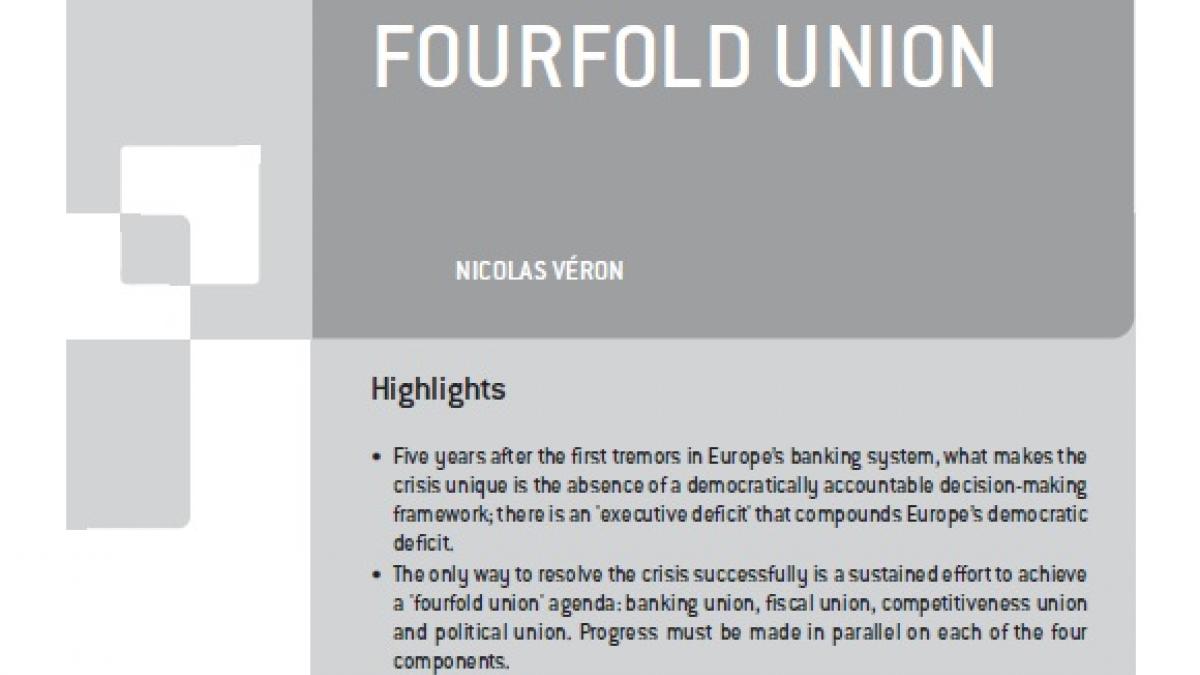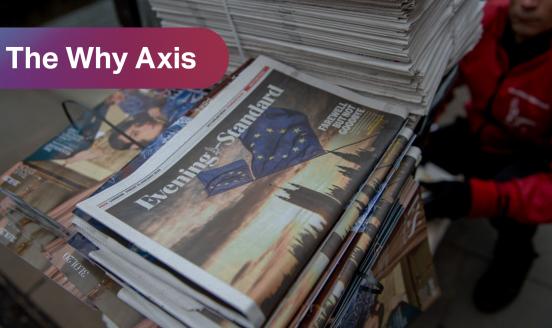The challenges of Europe's fourfold union
This Policy Contribution reproduces Nicolas Véron’s statement delivered at the hearing on 'The Future of the Eurozone: Outlook and Lessons' at the Sub

Five years after the first tremors in Europe’s banking system, what makes the crisis unique is the absence of a democratically accountable decision-making framework; there is an 'executive deficit' that compounds Europe’s democratic deficit. The author argues that the only way to resolve the crisis successfully is a sustained effort to achieve a 'fourfold union' agenda: banking union, fiscal union, competitiveness union and political union. Progress must be made in parallel on each of the four components. In particular, successful progress towards banking union requires a combination of short term action, including the establishment of a temporary resolution authority to identify undercapitalised banks and to restructure them, and longer-term measures, including the creation of permanent authorities for supervision, resolution and deposit insurance.
This Policy Contribution reproduces Nicolas Véron’s statement delivered at the hearing on 'The Future of the Eurozone: Outlook and Lessons' at the Subcommittee on European Affairs of the US Senate Committee on Foreign Relations, in Washington DC on 1 August 2012.



